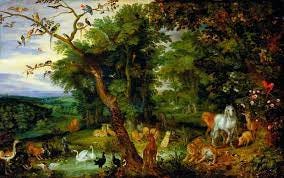According to Giorgio Agamben, the history of Western thought was fatefully determined by the Septuagint translation of the Hebrew gan into the Persian-Greek paradise. The Persian-Greek, in contrast to the Hebrew, connotes a garden that is royal. Had the Greek translator(s) gone with the less exalted word, kepos, intellectual and political history might…
Keep reading with a 7-day free trial
Subscribe to What Is Called Thinking? to keep reading this post and get 7 days of free access to the full post archives.



